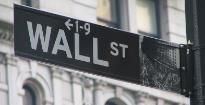Debt Fight Spooks Wall Street
Three things are wrong with the continuing insistence by the Republican Congressional leadership and a number of potential GOP presidential candidates that the financial markets will not react negatively if the existing federal debt ceiling is not increased by Aug. 2, the date that the U.S. Treasury says the government’s cash situation will become critical.
First, it’s not at all clear that GOP Congressional leaders really believe what they are saying. One of the back stories to last week’s scam of a debate in the House on a “clean” debt ceiling bill was that the leadership apparently went out of its way to let the financial world know in advance that the vote was nothing more than political theater and shouldn’t be taken seriously. That’s the Washington version of the hedging that’s typical on Wall Street. It’s also ample evidence that the leadership was worried enough about a negative reaction from investors that it needed to reassure them in advance about what was happening and what it meant. That’s not a vote of confidence in the hold-the-debt-ceiling-hostage strategy that we keep being told will not have a negative impact on interest rates, market psychology, stock prices or economic growth.
Second, the leadership and the candidates don’t seem to realize or be able to admit that the White House is in control of many of the levers that will affect the markets. Administration officials, not the Congressional leadership, will determine how to deal with a cash shortage, and Wall Street is much more likely to react to the Treasury’s decisions than to political hyperbole, demagoguery and attempted spin. Try to imagine the virtually immediate impact on the stock price of government contractors if the administration announces on Aug. 2 that money owed to those companies will be paid after 120 days instead of 30, and you start to get a sense of how much the White House rather than Congressional Republicans are in control of the situation.
Third, in spite of all the GOP protestations to the contrary, there are actually a number of important signs that capital markets have already begun to react disapprovingly to the debt ceiling impasse and that the economy is starting to feel the negative effects.


